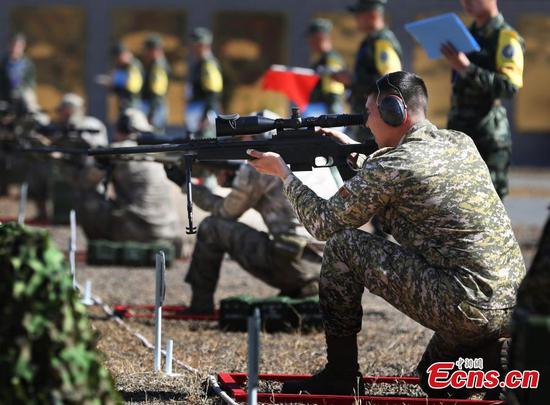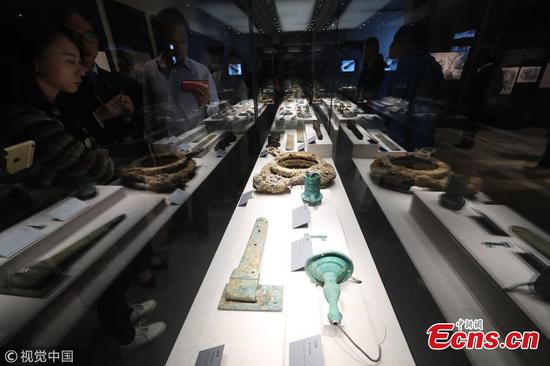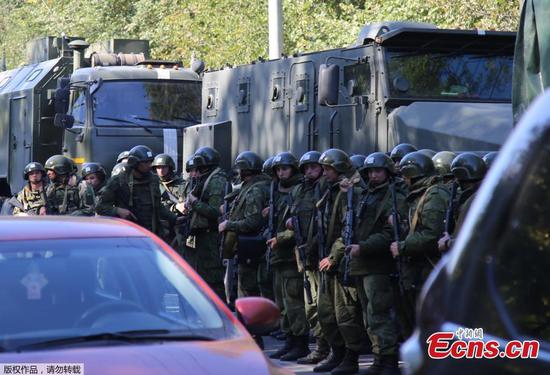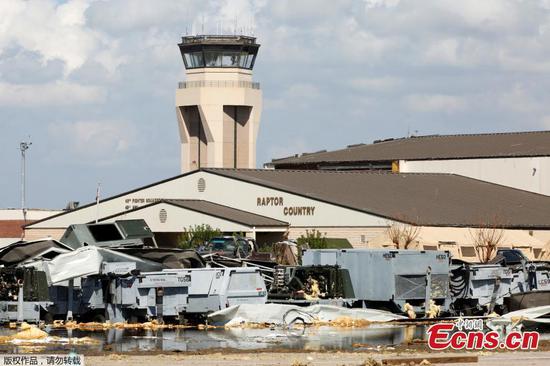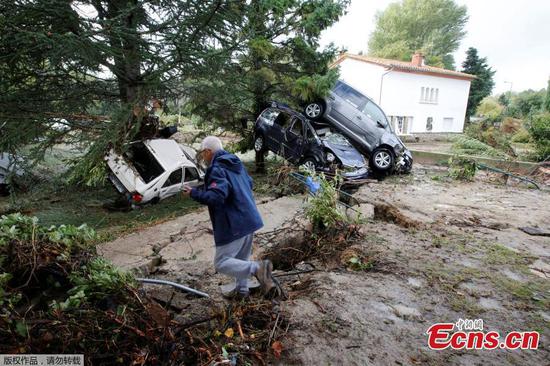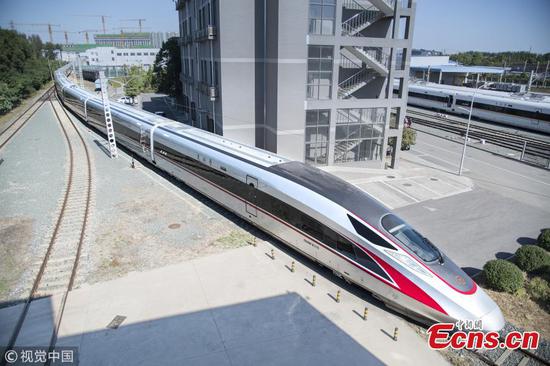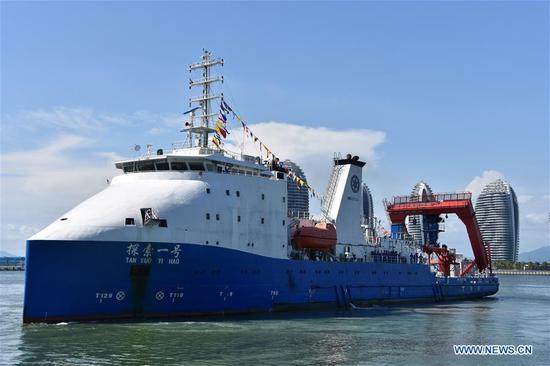With the memory of Theresa May's humiliation at last month's Salzburg Summit still fresh, another European Union (EU) leaders' summit has kicked off in Brussels, and the British Prime Minister again failed to inch any closer to a Brexit deal with her counterparts from the continent.
During a pre-dinner speech on Wednesday, May called on joint efforts to be made by the 27 EU leaders: "The last stage will need courage, trust and leadership on both sides."
Her counterparts, however, proved to be unimpressed, with the EU side claiming "not enough progress has been achieved" after the EU leaders, excluding May, discussed Brexit over the dinner.
Probably the only new element this time is that both sides have signaled a willingness to extend the transition period after Brexit officially takes place to December 2021.
But that is not set to fix the crux of the Brexit negotiations, which has less to do with the length of the transition period, and more to do with the content of the deal.
Sticking points
Since May revealed a white paper on the future relationship between the UK and EU - commonly known as the Chequers Plan - in June, sticking points about the differing intentions of the UK and EU regarding the UK's position regarding issues such as the single market and the customs union have arisen.
While May proposed for the UK to stay in the single market for goods in a de facto sense, and in a quasi-customs union with the bloc, so that no border controls would be necessary, the EU likened that idea to "cherry picking", insisting the UK cannot be in the market for goods without accepting the free movement of people, services and capital.
The Chequers Plan has also been vehemently blasted by some UK politicians, including several of May's Conservative colleagues.
Former British Foreign Minister Boris Johnson's challenge for May to "chuck" her Chequers Plan won thunderous applause at a gathering during the Conservative Party's annual conference earlier this month.
Among all the specific issues regarding the UK's exit from the EU, the Irish border has particularly stood out in recent discussions.
Admittedly, both the UK and the EU have agreed that there should be no hard border between Northern Ireland (NI) and the Republic of Ireland (ROI) after Brexit, however, they haven't found the common ground needed to make that happen.
The EU's solution is a backstop that would keep NI in the EU customs union, most of the single market and the EU VAT system.
For the UK, this is hard to swallow as any form of separation between NI and the rest of the UK would be deemed as detrimental to the country's constitutional integrity.
According to the BBC, there are indications that the EU has been coming round to a backstop which would involve an all UK customs arrangements.
But the EU is adamant that there cannot be a time limit - any backstop must apply "unless and until" it is no longer needed.
If such an agreement was reached, then that would require a "backstop" to the "backstop", as there would need to be something in place in case the issue was not sorted out in time.
That "something" is the original EU backstop proposal which would apply only to NI, the BBC explained.
The British reaction
Based on some viewpoints taken from Twitter, opinions among Britain's online users concerning the prospect of Brexit are equally divisive.
Some are totally disappointed in their leader for negotiating with the EU. Some warn of a disastrous outcome to a "No deal" Brexit. Some think the EU is just bluffing. And some believe having a second referendum is the only way out.
As diverse as the suggestions are, no realistic alternative has been agreed to just yet.
Prepare for a "No deal" Brexit?
The EU originally planned to hold an extra Brexit summit in November "if and when the Union negotiator reports that decisive progress has been made," but after the latest much-expected summit in Brussels once again failed to reach any solid advances in the Brexit deal, it is no surprise that an EU official declared that the November summit is unlikely going to happen.
Professor Hans-Peter Burghof, holder of the Chair in Banking and Financial Services at the University of Hohenheim, Germany, told CGTN Digital that he sees a solution to the current stalemate hard to achieve.
"Political decisions cannot really be foreseen. I could imagine that the parties will agree to a contract that sounds good, but is not feasible in the long run. A sustainable solution is out of reach. And there are many scenarios that lead to hard Brexit without any agreement, in particular due to the weak position of the British Prime Minister within Britain," he said in an email.
The latest has it that Germany and France are starting to draw up no-deal Brexit contingency plans, even though both publicly promised they would continue to work towards striking an agreement with the UK.
It is uncertain when the next EU summit on Brexit will take place, but it is almost guaranteed that no single summit in the near future will be able to generate the "breakthrough" that is long overdue.












